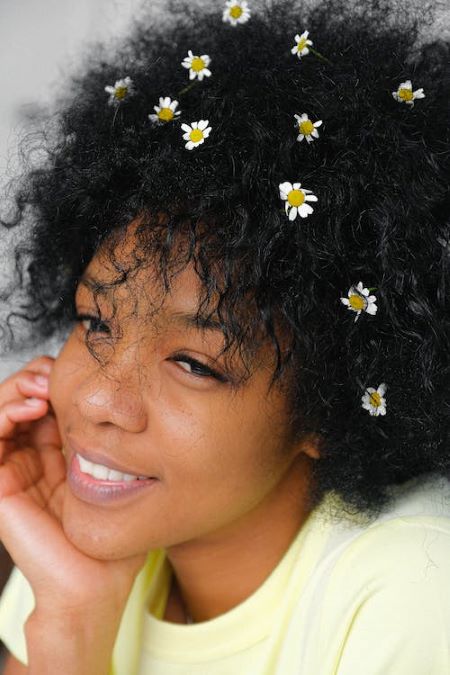We untangle the history of Black hair and look at how it’s styled and maintained…
Historically, Black people have faced challenges in caring for their hair due to various factors including racism, societal pressures and lack of access to resources. During the era of slavery, Black people were forced to wear head coverings and were often not allowed to care for their hair properly. After slavery was abolished, many Black people continued to face discrimination and were discouraged from wearing their hair in its natural state.
In the 20th century, the ‘good hair’ versus ‘bad hair’ mentality became prevalent, which placed a higher value on straighter, finer hair textures, leading many Black people to use chemical relaxers or straightening combs to alter the texture of their hair. These practices often lead to damage and breakage, making it challenging to maintain healthy hair.
In recent years, however, there has been a movement to embrace natural hair and to provide resources and education on proper hair care for Black people. This movement has been driven in part by social media, where Black people have been able to connect and share information and tips on hair care. The natural hair movement has also led to the creation of many Black-owned hair care brands and salons that cater specifically to those with natural hair.
To address the lack of access to resources for hair care, many Black people have turned to creating their own hair care products and developing their hair care regimens. This has led to many Black-owned hair care brands specialising in natural hair care. Many of these brands use natural ingredients and avoid harsh chemicals that can damage the hair.

Here are five ways Black people style or maintain their hair:
- Protective styles: Many Black people use protective styles to protect their hair from damage and breakage. Protective styles include braids, wigs, weaves, twists and bantu knots. These styles allow for low-maintenance hair care and protect the hair from harsh environmental factors.
- Natural hair: In recent years, many Black people have embraced their natural hair texture and wear their hair in its natural state. This can include afro, curls, coils, and locks. To maintain natural hair, many people use various natural hair products such as oils, leave-in conditioners, and styling creams.
- Haircuts and styles: Black people also frequently style their hair in various haircuts and styles. This can include fades, buzz cuts, and textured cuts. Other popular types include twists, braids, and cornrows.
- Hair colouring: To create various appearances, some Black people choose to regularly colour their hair. This can include natural colours like brown or blonde or more vibrant colours like red or purple. Hair colouring can be performed at home or at a salon.
- Hair accessories: Black people also regularly use hair accessories to style their hair. This includes head wraps, scarves, hair pins, and ties. Accessories can add a fun and stylish touch to any hairstyle and can be used to create various looks.
Here are some websites that may help explore hairstyles and hair care for Black people:
NaturallyCurly.com: This website has a wealth of information and resources for those with natural hair, including product recommendations, styling tutorials, and community forums.
BlackHairInformation.com: This website provides information on natural hair, relaxed hair, and transitioning to natural hair. It also includes product reviews, styling tips, and hair care advice.
ManeAddicts.com: This website features a wide range of hairstyle inspirations, including tutorials, trend reports, and celebrity hairstyles. While not exclusively focused on Black hair, it includes a lot of relevant content for those with textured hair.
CurlBox.com: This website provides a monthly subscription box service featuring hair products for natural hair. It also includes product reviews and styling tips.
Essence.com/hair: Essence is a popular magazine for Black women, and their website includes a section dedicated to hair care and hairstyles. It features articles on natural hair, styling tips, and interviews with celebrity hairstylists.




